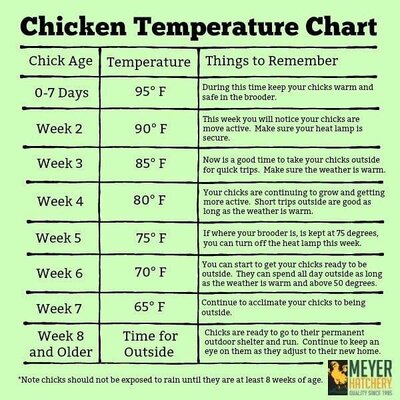Over the past week I've noticed most of our chicks (about 1 month old) aren't sleeping under the heater as much. Our AC is set to 73 so I thought they'd still want heat for a week or two more. The heater is angled so they can get a low end or a high end if they want.
It's my first time raising chicks so I just want to make sure they're comfy. Maybe this is a perfectly normal signal that they're almost ready to move outdoors 24/7? Nighttime temps are around 65 right now so I was thinking at least 2 more weeks before we take that step. They're spending daytime outside and they love it (80 - 85 degrees lately)
Bonus question - since we switched to outside all day, they're eating much less crumbles. I didn't think they'd possibly find that much food (bugs) in our 12x16 chicken run. Guess I was wrong? They spend all day dust bathing, sometimes napping, and lots zooming around enjoying themselves. I don't think they're that good at digging for bugs yet
Thanks all
It's my first time raising chicks so I just want to make sure they're comfy. Maybe this is a perfectly normal signal that they're almost ready to move outdoors 24/7? Nighttime temps are around 65 right now so I was thinking at least 2 more weeks before we take that step. They're spending daytime outside and they love it (80 - 85 degrees lately)
Bonus question - since we switched to outside all day, they're eating much less crumbles. I didn't think they'd possibly find that much food (bugs) in our 12x16 chicken run. Guess I was wrong? They spend all day dust bathing, sometimes napping, and lots zooming around enjoying themselves. I don't think they're that good at digging for bugs yet
Thanks all





